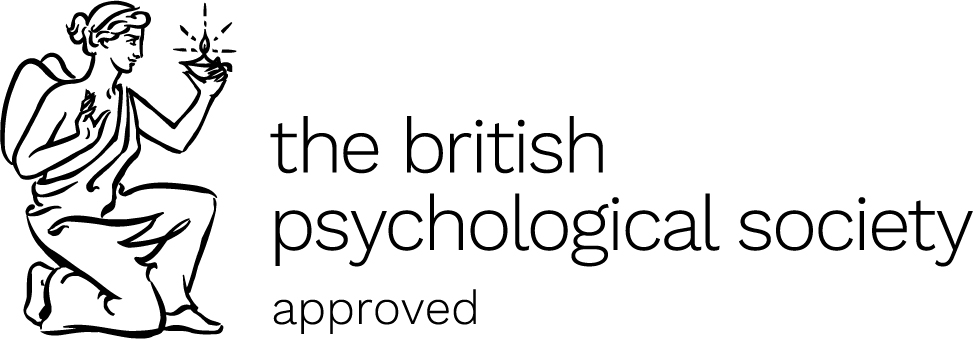
Course Brief
CLICK HERE TO BOOK THIS COURSE
This practical one day course has been fully updated and can be taken as a module of the BPS Approved Certificate in Clinical Supervision or as an independent training for experienced supervisors. As before, the course addresses common supervisory issues including internet based supervision, running Supervision Groups, and supervising other supervisors.
With plenty of opportunities for asking questions and sharing your own problems and successes in clinical supervision, this course is the perfect opportunity to refresh and fine-tune your practice as a supervisor.
Click here to book the first three modules of the Certificate at once and save.
CLICK HERE TO BOOK THIS COURSE
This one day course addresses three separate advanced supervision issues:
- Conducting internet based supervision (inc. video based supervision, email and messaging)
- Running Supervision Groups (as opposed to 1:1 supervision, inc. video based group supervision)
- Supervising supervisors
Conducting internet based supervision (inc. video based supervision, email and messaging)
Internet developments in the supervision field were accelerated by the pandemic – as were so many other developments in our field. Whereas beforehand online supervision was both rare and preoccupied by GDPR, now a whole host of new issues have developed which require consideration.
These include:
- How to supervise online those whose work with clients is itself video based
- Setting and security issues for both supervisor and supervisee – especially related to WFH
- New developments in the use of non-video based internet methods – for both supervision and work with clients
- Changing professional body attitudes towards internet therapy AND internet supervision
- The impact of internet communication on both the supervision relationship and the therapeutic relationship
- Common pitfalls of internet therapy and supervision and how to avoid them
Running Supervision Groups
Supervision groups are one of the most commonly used supervision models, yet with the least written about them combined with the need for the most demanding skill set.
The course will exam a number of issues including:
- How to run video based online supervision groups
- How to avoid common mistakes
- Advantages and limitations of group supervision
- Peer group flat structures vs fixed supervisor facilitator vs rotating facilitator
- The use of supervision group exercises
- Group processes as they apply to supervision groups and how to manage them
Supervising Supervisors
If the literature on supervision is thin on the ground, there is an even greater lack of guidance or even recognition of the need for supervisors to receive supervision. Many supervisors in private practice either combine this need with their own practice supervision or ignore the issue altogether. In employed environments, there are many supervisors who may supervise supervisors but receive no guidance on what their role is or its aims. Professional bodies also frequently ignore the whole question. There are the beginnings however of new thinking on the supervision of supervisors including the development of competency criteria and assessment and the mapping of supervision models onto “the supervision of supervision”
This course will address the following and highlight new developments:
- The argument for supervision of supervisors.
- The formal relationship between a supervisor and their own supervisor
- What should the aims of such supervision be?
- Supervisor skillset – a new skillset or simply a new application?
- A template for supervising supervisors
Click here to book the first three modules of the Certificate at once and save.
This Course is now available as a full recording with an online test via SDS Online Video Training (OVT).
Title: Advanced Supervision Skills (Updated/New Developments)
CPD Hours Attached: 7 CPD Hours
Click here for more details and to enrol on the course
Click here to book the first three modules of the Certificate at once and save.
Attendance of Essential Supervision Skills is required for the BPS Approved Certificate in Clinical Supervision completion.
Click here to book the first three modules of the Certificate at once and save.
Accreditation for BPS Approved Certificate in Clinical Supervision
SDS Accreditation in Clinical Supervision, Level 1 (Foundation) is the level of accreditation you obtain by attending the SDS Essential Supervision Skills course (BPS Approved Certificate in Clinical Supervision) - this course via live training or live/recorded webcast.
This level of accreditation gives you a Certificate of Attendance, as well as access to the course materials and other resources, and enables you to state in your CV that you have SDS Accreditation in Clinical Supervision Level 1 (Foundation).
Your accreditation currently lasts for 3 years, after which you cannot make the above statements and access course resources. This level of accreditation is renewable by continuing SDS training in Clinical Supervision to higher levels of Accreditation and afterwards - attending the follow-up courses.
SDS Accreditation in Clinical Supervision, Level 2 (Assessed Academic Competence) means you have undertaken training as in Level 1, and also passed the online exam.
This level of accreditation gives you a Certificate of Completion with Assessed Academic Competence, as well as access to the course materials and other resources. It also enables you to state in your CV that you have SDS Accreditation in Clinical Supervision Level 2 (Assessed Academic Competence) and can use qualification, CSAccred.(AAC) in your title.
Your accreditation currently lasts 3 years. This level of accreditation is renewable by continuing SDS training in Clinical Supervision to higher levels of Accreditation and afterwards - attending the follow-up courses.
SDS Accreditation in Clinical Supervision, Level 3 (Advanced) is as Level 2, with the addition of completing an Advanced Supervision Course covering Clinical Supervision for Supervisors, Group Clinical Supervision and Conducting Internet Based Supervision.
This level of accreditation gives you a Certificate of Completion (Advanced) with Assessed Academic and Clinical Competence, as well as an access to the course materials and other resources. It also enables you to state in your CV that you have SDS Accreditation in Clinical Supervision Level 3 (Advanced) with Assessed Academic and Clinical Competence and use the qualification, CSAccred.(Advanced) in your title.
Your accreditation currently lasts 3 years. This level of accreditation is renewable by continuing SDS training in Clinical Supervision to higher levels of Accreditation and afterwards - attending the follow-up courses.
Click here to book the first three modules of the Certificate at once and save.
SDS Accreditation in Clinical Supervision, Level 4 (Clinical Proficiency) is as Level 3, with the addition of:
- Submitting a project of an acceptable standard (3,000 words). The purpose of the project is to illustrate that you can apply the academic knowledge gained from the course to practical clinical supervision situations. The project should follow one of the formats below:
- A small quantitative research project examining an aspect of the supervision process. Prior experience and knowledge of simple experimental design and statistical analysis is required. The clinical supervision field is largely “a green field” site with multiple unaddressed questions both regarding process and especially outcomes. The “write up” should BROADLY follow the format indicated in university guides to writing up psychology research projects.
OR - A qualitative report comparing either the published research and/or content of the SDS Level 1 course to the delegate’s own experience as a supervisor.
- Similarities and differences between research/academic content and supervisor experience should be highlighted and discussed.
- External (e.g. organisational/professional body) and internal (e.g. emotional/ethical) constraints on supervisor behaviour should be illustrated along with how those constraints were managed.
- Similarities and differences between supervisor and supervisee experience should be illustrated along with its implications for the supervision process
- Learning points from the above should be indicated along with how this will influence the supervisor’s subsequent practice
- Submitting of a record of regular (no fewer than 4 times a year) supervision sessions “Supervision for Supervisors”. Book your Supervision for Supervisors sessions here.
- A small quantitative research project examining an aspect of the supervision process. Prior experience and knowledge of simple experimental design and statistical analysis is required. The clinical supervision field is largely “a green field” site with multiple unaddressed questions both regarding process and especially outcomes. The “write up” should BROADLY follow the format indicated in university guides to writing up psychology research projects.
This level of accreditation gives you a Certificate of Completion with Clinical Proficiency, as well as access to the course materials and other resources. It also enables you to state in your CV that you have SDS Accreditation in Clinical Supervision Level 4 (Clinical Proficiency) with Assessed Academic and Clinical Competence and use the qualification, CSAccred.(CP) in your title.
Also at this level you can gain Access to SDS’ Network of Qualified Clinical Supervisors.
Your Level 4 accreditation currently lasts 5 years. This level of accreditation is renewable by continuous Supervision for Supervisors and attending the SDS follow-up courses for Clinical Supervisors.
Available Follow Up Courses:



